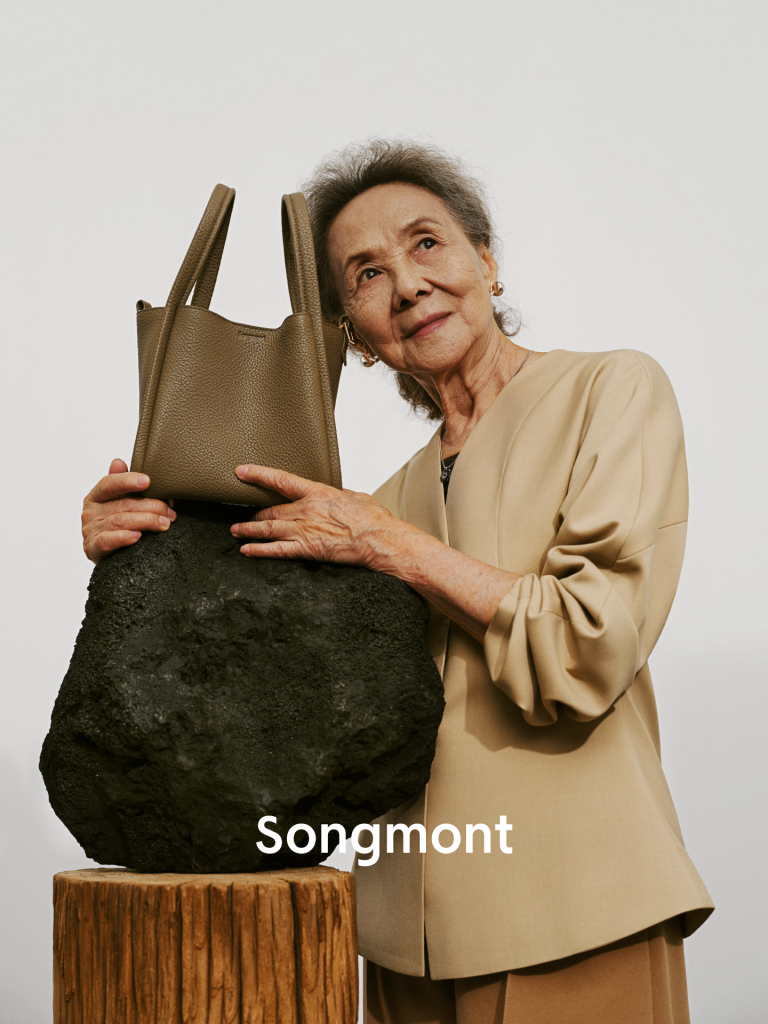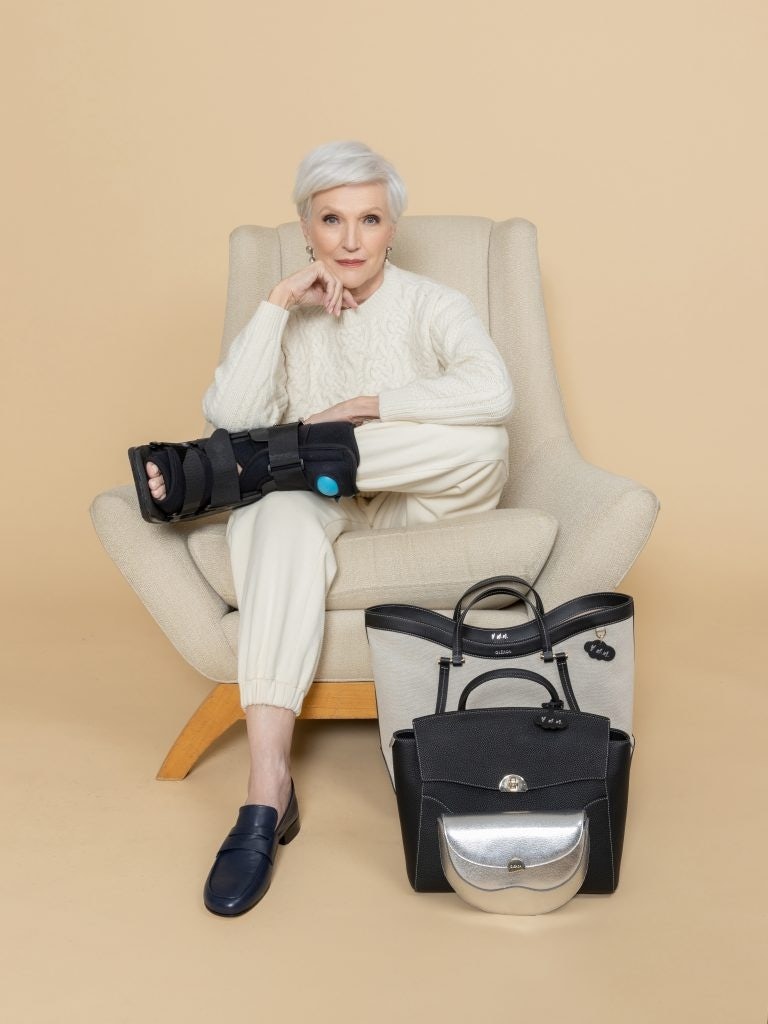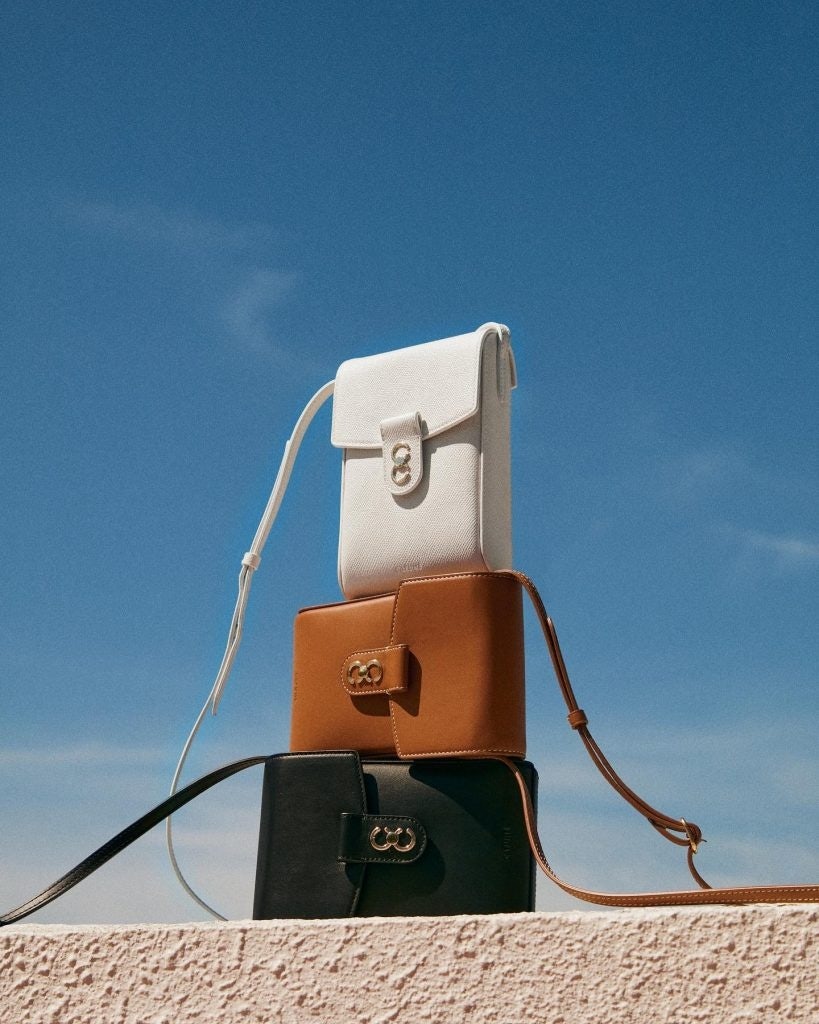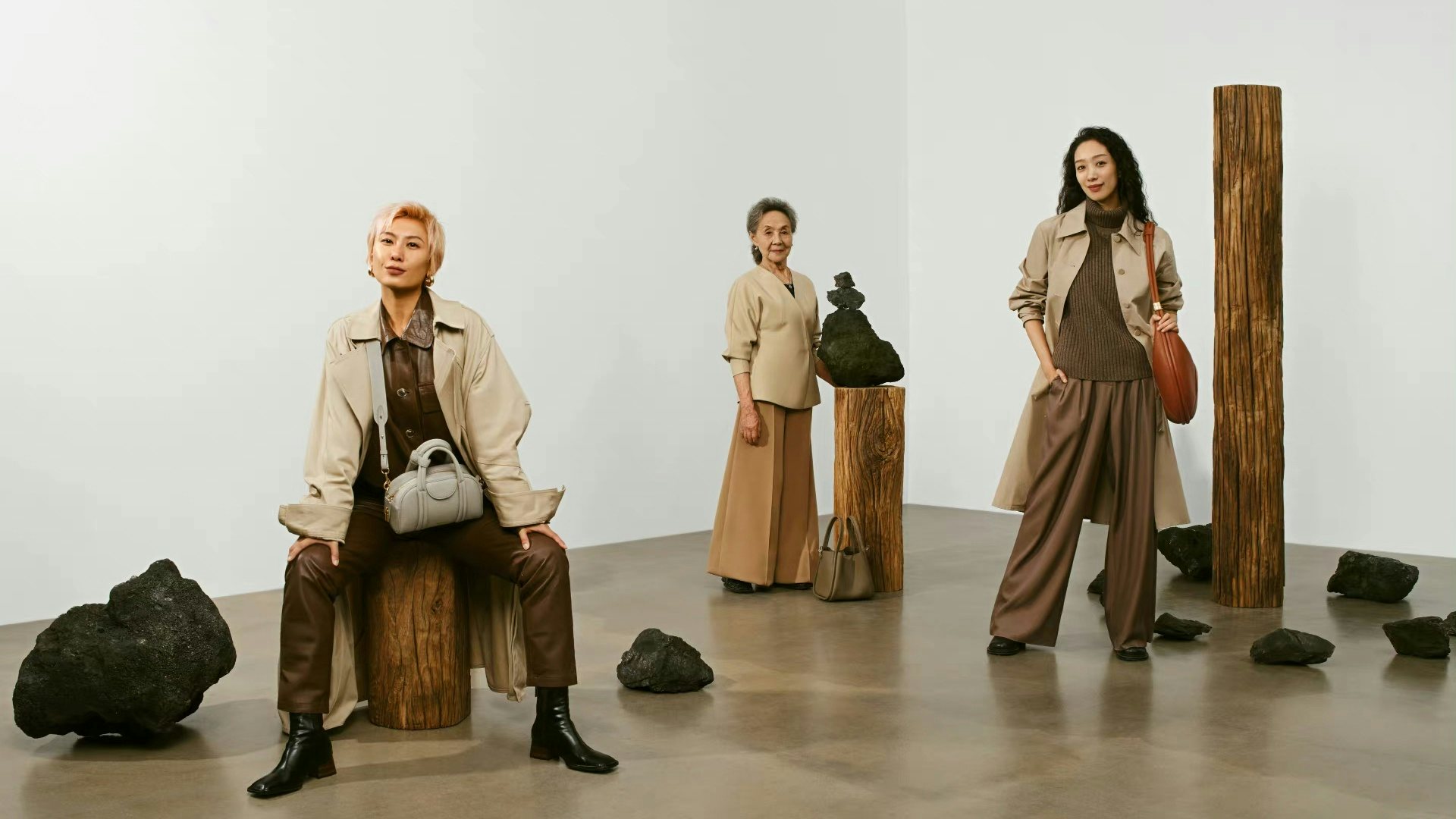Chinese brands are usually not the first thing that springs to consumers’ minds when it comes to “It" bags. Usually dominated by Western heritage houses like Louis Vuitton, Balenciaga, Loewe, and Chloe, they offer a certain type of prestige or status. Yet in recent years, an increasing tide of indie Chinese bag labels have found their way onto fashion week runways in Paris, Milan, London, and New York, with frequent appearances on A-listers’ social media feeds. As these emerging names continue to expand their influence worldwide, it is time for the industry to recognize them.
Take Songmont, a Chinese bag label founded in 2013, which is best known for feminine-shaped, mid-priced (250-350) bags inspired by modern Eastern aesthetics. Its Song Bag, a rectangular, soft-edged leather basket that feels a bit like the practical reinterpretation of Hermès’ Picotin lock bag, has become an influencer darling at Milan and Paris fashion weeks. The brand’s other iconic bags — the Tofu satchel and the creased-leathered Wonton purse — are also rising accessories for the Instagram-obsessed fashion crowd.
What initially started as the founder’s personal project to build herself a day bag has now grown into the No.1 selling domestic label in Tmall’s accessory ranking. With two flagship stores in Beijing and Shanghai, Songmont is currently the poster child for China’s emerging “It" bag scene.
A laser-sharp focus on addressing customers’ everyday needs is the formula for success, according to the brand’s founder Song Fu. “As a former UI/UX designer, user experience is the key for me. We observe small details and needs from people’s daily life and put them into product details, such as how to design the bag so customers can take out their phone in the easiest way? How to make a bag that would fit all occasions and all seasons? We constantly interact with our customers and we really take their feedback seriously so they can actually join the process of perfecting our designs. I think this is what makes us stand out,” Song tells Jing Daily.
Besides thoughtful details, purposeful storytelling has also set the brand apart from the competition. While most Chinese fashion brands almost exclusively center their marketing around young celebrities, Songmont often features “grandmas” in their campaigns to combat ageist stereotypes. Earlier this month, the brand launched a campaign featuring Wu Yanzhu, an 84-year-old actress, as its new ambassador. In an era when “It" bags are increasingly considered social symbols such as the likes of Telfar, Songmont’s inclusive marketing language is undoubtedly a plus point for culture-conscious shoppers.

Oleada, a modern luxury bag brand founded in 2020, also takes value-building seriously. Determined to make the best work bags, the brand is inspired by “the 9-to-5 lifestyle of modern professional women,” explains Tiffany Zhou, co-founder and creative director.
Its bestselling Wavia Bag (starting at 565), featuring a rigid shape and lightweight construction, can fit a 13-inch laptop in a dedicated compartment and convert into a handbag, a shoulder bag, and a backpack with a pass-through luggage sleeve for easy travel. The brand’s sleek, multifunctional handbags have since found fans among women worldwide, including international influencers Aimee Song and Jenny Walton.
“When I worked in private equity, my female colleagues and I found luxury handbags either too heavy or not laptop-friendly enough. We want Oleada bags to be solutions to real-life problems rather than just another fashion accessory, so we adopt design thinking and material science in our design process. The science behind everything makes us stand out,” Zhou tells Jing Daily.
With a mission to serve professional women, Oleada hosts women networking events regularly in New York, Shenzhen, and Shanghai. In October, the brand collaborated with Maye Musk, a 73-year-old model who is better known as Elon Musk’s mother, on a capsule collection called “From Boardroom to Ballroom” as part of its continued efforts to grow the brand on a global scale.

Both Songmont and Oleada, with a shared emphasis on perfecting the practical-chic style, say that their customer needs from different countries are, in fact, very similar. “Before starting my own brand, I have worked in an American company for 16 years. I noticed that although there are differences between cultures, people’s needs for bags are very much the same,” said the Songmont founder.
Oleada’s Zhou made similar comments. “We believe the lifestyles of the modern professional woman can be quite universal — whether she is a banker in New York, a lawyer in Hong Kong, or a management consultant in Shanghai. While we don’t necessarily localize our designs for different markets, we do put efforts into building strong emotional connections with the local communities,” she explained.
By offering details that help women transition smoothly between airports, meeting rooms, and dinner parties, these two brands have built a universal design language that will strike a chord with customers across borders.
Meanwhile, Cafuné, a Hong Kong bag label known for its sculptural simplicity, sits on the more artistic end of China’s designer bag market. The brand is currently listed in multiple luxury retailers from Bloomingdale’s to Farfetch, and will soon launch a pop-up in Shibuya, Tokyo in December.

Sculpture, art, and unusual forms are what inform the newness in its designs, according to the brand’s head designer Queenie Fan. “Creating handbag pieces in unexpected shapes that draw from these references, we have established a Cafuné design language, and I think that’s what makes our accessories unique,” said Fan. Its signature Stance Bag (627) features a vintage suitcase-inspired rigid handbag with golden logo hardware and a sophisticated flare. At the same time, it comes with several practical details: scratch-proof leather, a roomy interior, and bag feet protectors to keep it dirt-free.
Across style genres and price points, the most common theme connecting these Chinese indie bag brands is their commitment to making convenience the top priority. In their design language, an Instagram-friendly aesthetic runs in tandem with function and versatility. While today’s "It" bag conversation is still dominated by micro bags, tiny clutches, and nano purses (a la Jacquemus and Prada), these Chinese labels offer a practical alternative.
After all, how many customers have a lifestyle that goes with pricey designer mini bags that barely fit an iphone? Addressing this pain point is how indie Chinese brands with chic commute-friendly pieces and lower three-digit price points will come to reign.

